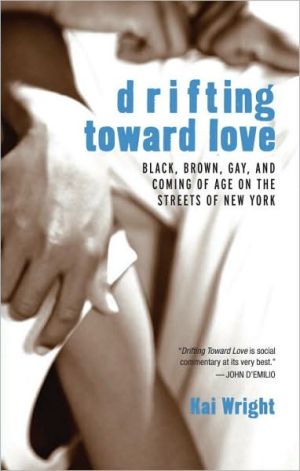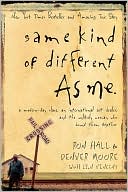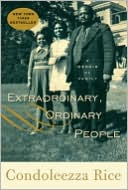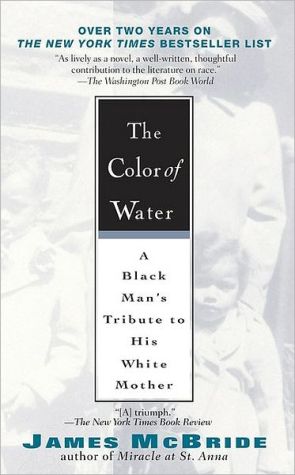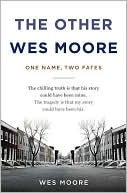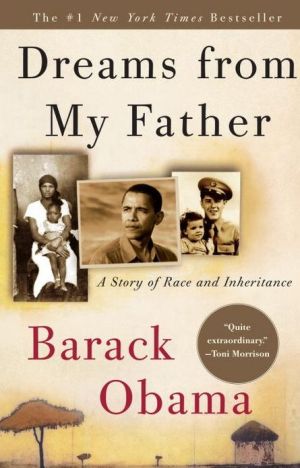Drifting Toward Love: Black, Brown, Gay, and Coming of Age on the Streets of New York
In Drifting Toward Love, journalist Kai Wright introduces us to Manny, Julius, Carlos, and their friends, young gay men of color desperately searching for life's basic necessities. With these vivid, intimate portraits, Wright reveals both their heroism and their mistakes, placing their stories into a larger social context.
Search in google:
Drifting Toward Love tells the stories of Manny, Julius, Carlos, and their friends, young gay men of color desperately searching for life’s basic necessities: homes that provide more than shelter and security against more than violence or disease. As these teenagers navigate the rocky waters of adolescence, they wade through pains and passions that are typical of any young person coming of age. But they do so with few resources—material or emotional—in a world where the cards are stacked against their success. Journalist Kai Wright paints vivid, intimate portraits of these young men’s sometimes tragic, often heroic lives. Manny is a working-class city kid making awkward teenage discoveries about his sexuality. In a troubled relationship with his mother and a stifling, combative school environment, he clumsily elbows out enough space to find himself. In the process, he and best friend Jason move from a budding love based on videogames and music to a troubled bond held together by drugs and sex for money. In one devastating instant, Manny will realize the demons Jason truly faces. Out of the wreckage of the life he builds with Jason, Manny drifts into an explosive social movement, fighting for public space for queer youth, and finds his calling as an activist. Julius’s story, meanwhile, is a classic New York tale: a young, dynamic gay man flees his rural home, seeking freedom in the big city. With no one to help guide his journey in New York, however, Julius never finds his footing, tumbling rapidly through homelessness, hustling, and drug abuse. He gradually confesses that his primary goal remains elusive: discovering love, and holding on to it. Wright finds Julius in a gay-friendly shared house in a rough spot on the east side of Brooklyn. Carlos considers that same house a lifesaver, an unlikely safe haven in the middle of his childhood neighborhood, but he must balance his efforts at independence with the growing demands of his large Puerto Rican family, in which he serves as the lynchpin. In Drifting Toward Love, Wright tells these stories and more, weaving in years of reporting on the broader social, economic, and political dynamics that box in gay men of color as they come into their own. By the end, a powerful and sometimes troubling story has unfurled that offers a unique and vital snapshot of the often overlooked lives of young people like Manny, Julius, Carlos, and their friends.“As compelling a page turner as the tensest thriller and as emotionally rich as the sweetest love story. Kai Wright lets the bravery, resilience, and creativity of these teenagers shine through every page. The hardships they face will make you angry; their heroism will inspire you. Drifting Toward Love is social commentary at its very best.”—John D'Emilio, author of Lost Prophet: The Life and Times of Bayard Rustin"Kai Wright's Drifting Toward Love bears the mark of a literary masterpiece, reading more like a work of fiction than journalism. Yet, the lives he chronicles are not fiction but rather the very real, complicated and often times tragic stories of gay male youth of color in New York. These young men’s stories and Wright’s rendering of them compel us all to reconsider our judgments about “at risk” kids and remind us of the resilience of the human spirit.—E. Patrick Johnson, author of Appropriating Blackness“Kai Wright’s journalistic talents give much needed voice to the struggles of queer youth of color in New York. The stories unfold passionately without judgment to reveal the common adversity we endure and are challenged with as gay men of color trying to survive and reclaim our space in this city. Resonating with genuine realness, each account celebrates an inspiring journey and leaves us with hope for the future of our community.”—poet Emanuel Xavier, author of Americano and editor of Bullets & Butterflies"Kai Wright has precisely diagnosed the dysfunction of homophobia. With his innsights, we can provide the best possible care to Black and Latino children. Group homes, support groups and community-organizing efforts described in this book demonstrate practical ways to counter negative effects of continued prejudice toward GLBT teenagers. The more we are able to replicate these relatively affordable models, the more we can help our children grow, graduate and share with all of our society from their deep and rich resources of creativity, passion and compassion."—Dr. M. Joycelyn Elders, former Surgeon General“Blessed with the ability to connect emotional stories with factual information, Kai Wright creates an artistic and humanizing portrayal of self-realization that draws the reader into an often unseen and underexposed community. This book is sure to touch young men and women everywhere who are still negotiating their sexuality, and most importantly, it reassures them that they are not alone. But Drifting Tooward Love is not only an important resource for young people. It's also a valuable tool for anyone who wants to understand the difficult choices we all make in coming of age.”—Keith Boykin, author of Beyond The Down Low: Sex, Lies and Denial in Black America"Not every at-risk youth escapes the physical and emotional devastation of life on the streets, but Wright's portrait of a few who have is a tonic."—Richard Labonte, Book Marks"Wright's greatest strength is his ability to take what could be a series of after-school specials and find the truth behind the set-ups."—Washington Blade, January 10th, 2008 "...intimate, at times heart-wrenching look at three young gay men of color who struggle to find a place-a bed to sleep in as well as a scene that allows them to be themselves without fear..."—Time Out New York, January 17th, 2008 “A compelling look at underreported lives.”—Out magazinePublishers WeeklyJournalist Wright (Soldiers of Freedom) evokes the passage to gay identity for three young men of color in this impressionistic, often disjointed account. The narrative juxtaposes vignettes from the lives-particularly the sexual lives-of Manny, a 14-year-old Brooklynite of Puerto Rican and Jamaican heritage who "had leadership skills so natural he was all but unable to control them"; Julius, a 22-year-old African-American transplanted from north Florida to New York who is "equally capable of stunning achievement and devastating self-destruction"; and Carlos, a 25-year-old Puerto Rican who is "a caretaker by nature." These are gracefully written, sympathetic profiles, but they are only loosely tied together by the young men's overlap at an informal shelter for queer youth in East New York, Brooklyn. Additionally, Wright's brief historical background- of East New York, Puerto Rico, Greenwich Village and the house ball scene, as well as of theories of homosexuality and reference to diverse statistical studies-reveal that he has done his homework, but this reportage fragments, more than it supports, the already tenuous structure. Wright brings Manny's, Julius's and Carlos's dilemmas, confusion and curiosity to light, but not into sharp focus. (Jan.)Copyright 2007 Reed Business Information
\ Publishers WeeklyJournalist Wright (Soldiers of Freedom) evokes the passage to gay identity for three young men of color in this impressionistic, often disjointed account. The narrative juxtaposes vignettes from the lives-particularly the sexual lives-of Manny, a 14-year-old Brooklynite of Puerto Rican and Jamaican heritage who "had leadership skills so natural he was all but unable to control them"; Julius, a 22-year-old African-American transplanted from north Florida to New York who is "equally capable of stunning achievement and devastating self-destruction"; and Carlos, a 25-year-old Puerto Rican who is "a caretaker by nature." These are gracefully written, sympathetic profiles, but they are only loosely tied together by the young men's overlap at an informal shelter for queer youth in East New York, Brooklyn. Additionally, Wright's brief historical background- of East New York, Puerto Rico, Greenwich Village and the house ball scene, as well as of theories of homosexuality and reference to diverse statistical studies-reveal that he has done his homework, but this reportage fragments, more than it supports, the already tenuous structure. Wright brings Manny's, Julius's and Carlos's dilemmas, confusion and curiosity to light, but not into sharp focus. (Jan.)\ Copyright 2007 Reed Business Information\ \ \ \ \ Library JournalIn this portrait, Wright, publications editor for the Black AIDS Institute, explores the lives of three young gay men of color. He focuses on their experiences, their friends and families, and their activities as he details their journeys in trying to belong.\ \ —Ann Burns\ \ \ Kirkus ReviewsGay people of color "struggle to fend off the false competition between racial and sexual belonging," declares the author, who delves into this paradox in three case studies. Wright (Soldiers of Freedom: An Illustrated History of African-Americans in the Armed Forces, 2002, etc.) follows his subjects, all young gay men, as they navigate personal, social and familial relationships. Julius, a foster kid and AP student, flees a stifling community in Florida and heads for New York City. Carlos, a Puerto Rican caught at the busy center of an extended family in his East New York neighborhood, must find the courage to deal with his burgeoning sexuality. Manny drops out of a Brooklyn high school and starts to work as a political activist after his best friend and lover commits suicide. Prostitution, homelessness, drugs and violence against gay men of color are all discussed in unflinching, at times wrenchingly intimate detail, alongside touching reminiscences of first love and the initial realization of a "different" sexuality. Wright criticizes such public-policy initiatives as web-filtering software, meant to block "obscene" websites, which frequently blocks nonsexual sites that provide gay youth access to important information. That's a particular problem, Wright posits, because so many of these young men have no mentors to turn to for advice. He closes with an account of the struggle between the largely Latino and African-American GLBT community members who hang out on Christopher Street in Greenwich Village and the neighborhood's wealthy property owners as they battle over what has become an iconic public space. The narrative structure is frequently confusing, but the respect Wright feelsfor his subjects shines through. An important book about an often-marginalized group.\ \
